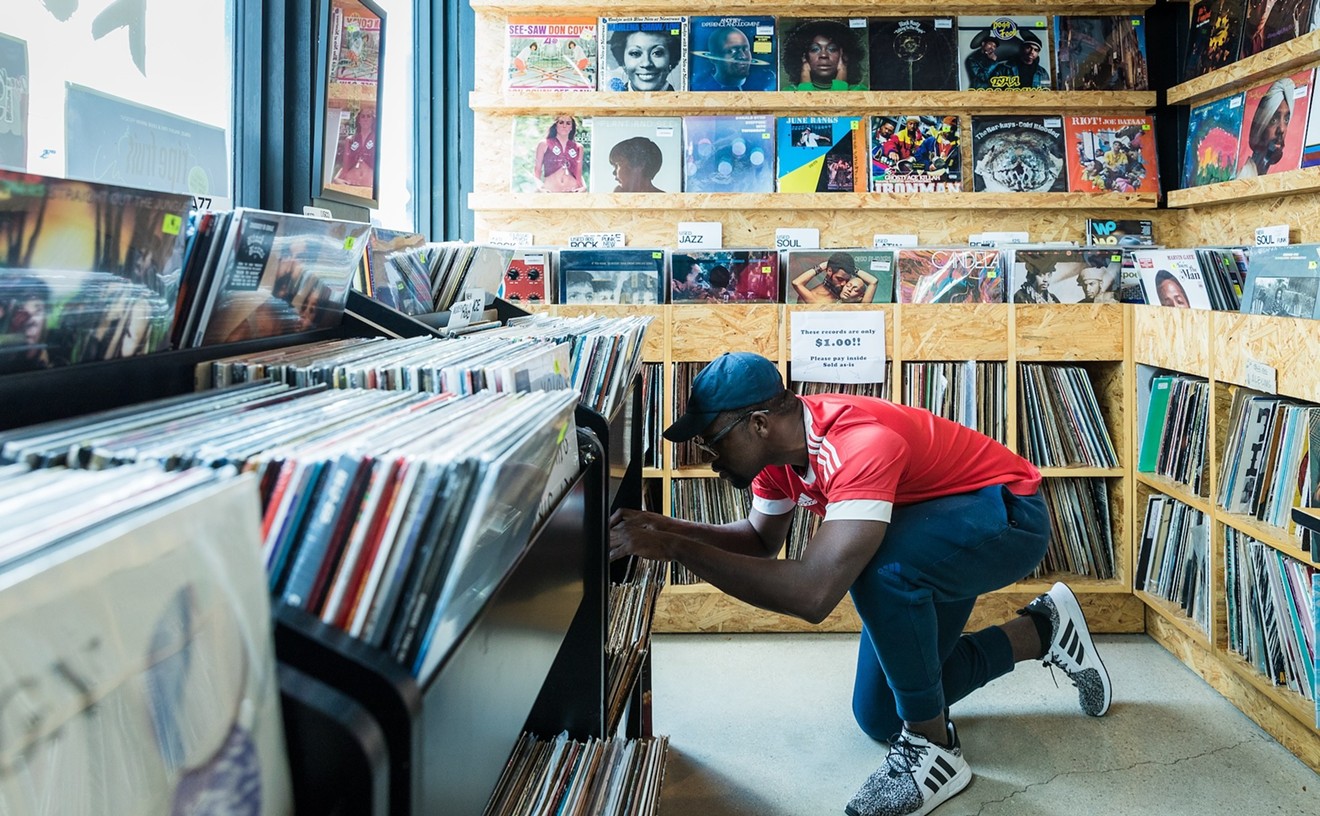Ryan Leslie is not your standard musician. He earned a 1600 on his SAT. He graduated from Harvard University with a degree in government. He was one of just four orators selected to speak at his senior graduation ceremony.
Since then Leslie has produced tracks for artists like Britney Spears, Snoop Dogg, and Beyoncé, beyond releasing five albums of his own. Now, after years in the industry, Leslie has decided to challenge tech giants with his own personal messenger service — which he claims to have coded himself — meant to bring artists closer to their fans while monetizing the process.
SuperPhone allows artists to share their phone number with fans, track purchases from online stores, and create a digital phonebook with charts and graphs depicting fan engagement. Artists can see which fans are most active and contact them directly. Rappers like Lil Wayne and Hopsin have already signed up for the beta version.
We spoke to Leslie about his venture, how it’s helped him juggle tens of thousands of communications at once, and some of the more unusual conversations he’s had with fans.
New Times: How have outlets like Twitter and YouTube enabled you to develop as an artist?
Ryan Leslie: Frankly, Snapchat (I'm “blkmzrt") is currently the platform most conducive to intimate, unfiltered, real-time content delivery. Making a commitment to sharing via any social media channel requires you to be creative in your expression via that media. Whereas the music video was a great vehicle to add dimension to an artist in the golden age of MTV, today these platforms enable a multifaceted window into the lives and ultimately the personalities — real and projected — of the artists that post. The rampant success of tabloids and the immense popularity of networks like TMZ support the argument that the culture of voyeurism equates to dollars. Social-media outlets allow us to be artists and write the stories we want to be shared and liked, directly and intimately — creating new personal revenue streams as we learn to leverage our audiences on these platforms to sell either our own wares or market the wares of others whose target audiences align with our own.
How did you manage 45,000 conversations during Social Media Week?
Through my SuperPhone (try me at +1-646-887-6978), I manage to respond to every single conversation at least once. When anyone sends me a message for the first time, my phone will at the very least invite them to exchange information with me so we can communicate directly over SMS. Once this happens, I can easily see with whom I'm talking and prioritize conversations that matter most to me at any given time.
Why did you develop SuperPhone?
Simply, I wanted to be able to call and personally thank every social-media follower that actually bought my album. I felt that was the most personal and meaningful way to show my appreciation. When I realized that I had a phone number on literally less than .01 percent of my social following, I knew that giving my number would be the best way to accumulate the 42,000+ numbers I manage today. This very personal exchange has led to millions of dollars generated with very little marketing spent. I could — and likely will — write an entire book about this.
What are some of the most memorable conversations you've had with fans?
Every conversation that extends beyond, "Hey is this your real number?" usually leads to a memorable exchange. I've hired interns and developers, found investors, booked speaking engagements, made investments, accepted invitations to incredible experiences — all via the power of personal direct communication via SuperPhone.
What were some of the most unusual conversations?
Organizing 30 1980s and 1990s Lamborghini Diablos and Countaches for a music video — free of charge from a fan and now friend.
You’ve also talked about implementing machine learning technology to manage SuperPhone. Can you describe how this would work?
This software would synthesize the 47,000+ conversations I'm having, looking for patterns and key phrases so that ultimately the machine's answers to common inquiries would be ridiculously close to mine — in my unique voice, just as though I was texting them myself. For more sophisticated conversations or for a select number of contacts — immediate family, for example — I'd get an alert to read and respond manually.
Beyond SuperPhone, are you optimistic about AI’s role in our near future?
Yes. As my late grandfather would say, "An ounce of prevention is worth a pound of cure." As much as AI will allow us to have more time to enjoy life by automating tasks of various complexity, I believe we will also greatly benefit from AI's ability to track early indicators of both physical and psychological inconsistencies and recommend treatment or examination.
Any advice for millennial aspiring rappers and entrepreneurs?
Call or text me.
Ryan Leslie. 11 p.m. Sunday, April 10, at LIV, 4441 Collins Ave., Miami Beach; 305-674-4680; livnightclub.com.
[
{
"name": "Air - MediumRectangle - Inline Content - Mobile Display Size",
"component": "19274298",
"insertPoint": "2",
"requiredCountToDisplay": "2"
},{
"name": "Editor Picks",
"component": "17482312",
"insertPoint": "4",
"requiredCountToDisplay": "1"
},{
"name": "Inline Links",
"component": "18711090",
"insertPoint": "8th",
"startingPoint": 8,
"requiredCountToDisplay": "7",
"maxInsertions": 25
},{
"name": "Air - MediumRectangle - Combo - Inline Content",
"component": "17482310",
"insertPoint": "8th",
"startingPoint": 8,
"requiredCountToDisplay": "7",
"maxInsertions": 25
},{
"name": "Inline Links",
"component": "18711090",
"insertPoint": "8th",
"startingPoint": 12,
"requiredCountToDisplay": "11",
"maxInsertions": 25
},{
"name": "Air - Leaderboard Tower - Combo - Inline Content",
"component": "17482313",
"insertPoint": "8th",
"startingPoint": 12,
"requiredCountToDisplay": "11",
"maxInsertions": 25
}
]










